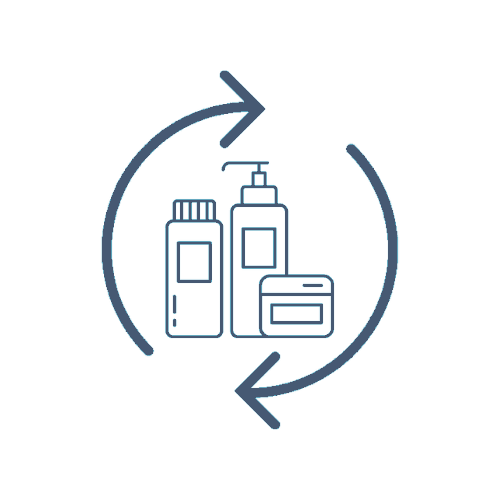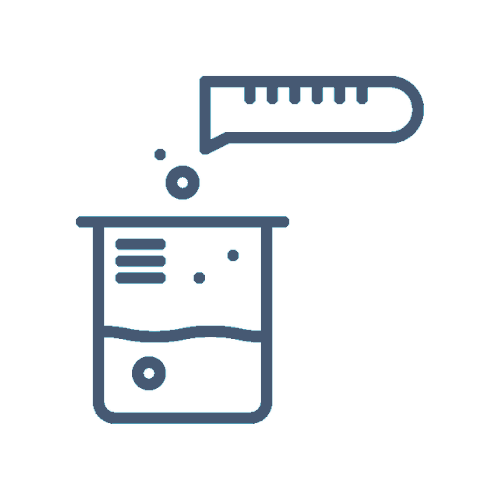Our Mission: To get safer products into the hands of everyone.
Decades of studies indicate that serious health issues (including but not limited to asthma, cancer, and infertility) are on the rise and are due in some part to our ongoing exposure to toxic chemicals—whether it’s in the shower, on our commute, while we eat lunch at a local restaurant, or when we clean our kitchens at home.
There are more than 80,000 chemicals on the market today. Many don’t have any safety data. This is particularly true of those used in the skin care and beauty industry.
What’s worse is that the Food and Drug Administration (the agency that regulates cosmetics in the United States) allows companies to use chemicals known to be extremely harmful in the products we put on our bodies and on our kids’ bodies every single day, day after day, and to make their own judgments about safety.
IT'S TIME FOR A CHANGE.
The United States has not passed a major federal law to regulate the safety of ingredients used in personal care products since 1938.
Over the past two decades, the European Union has banned more than 1,300 chemicals in the product formulas of personal care products and restricted the levels of over 250 more in such products. The United States has only partially banned 30 to date.
We deserve better, and we're doing something about it.
At Beautycounter, we’re committed to a health and safety standard that goes well beyond what’s required by U.S. law: We’ve banned the use of more than 1,800 questionable or harmful chemicals through our "Never List”—all while ensuring our products perform and that they’re as indulgent as any other luxe shampoo, lipstick, or oil in the market.
IT’S NOT EASY WORK, BUT IT’S WELL WORTH IT.
This is about progress—not perfection. Because every little bit counts.
We’re Setting the Cleanest Standards in Beauty
Advocacy
The U.S. has not passed a major federal law governing the cosmetics industry since 1938. (Ahem—that’s over 80 years.) The European Union has banned or restricted 1,400 ingredients from personal-care products. The United States has banned or restricted only 30—and to us, that’s simply not good enough. This is bigger than lipstick. It’s a giant step towards safety in beauty. Changing the beauty industry means more than simply making safer products. We are proud to be the leading company advocating for more health-protective legislation across North America.
In the U.S.
Since 2013, we have worked with lawmakers of all political parties to ensure the safety of product ingredients, stand up for consumer access to transparent labeling, and advocate for a future in which the beauty industry does not harm the planet. In addition, our Consultants host hundreds of meetings with Members of Congress in their hometowns, advocating for updates to laws governing personal-care products. Our collective voices are making a difference: to date, more than 2,000 meetings, 16,000 calls, and 175,000 emails later, more lawmakers than ever are placing cosmetics safety at the top of their legislative agendas.
State by State
Individual states have led the way in passing cosmetic reform legislation, and we have played critical roles in protecting children, workers, and the public in states like Oregon, Hawaii, and California. By lending our business voice and the support of Consultants and Clients across the country, we’ve raised the profile of personal-care product legislation, and passed many into law. Recently, we helped pass two pieces of important consumer-protective legislation in California, closing the “fragrance loophole” and eliminating certain ingredients known to cause health harms from personal-care products.
In Canada
Since our expansion into Canada in 2016, we have engaged with Members of Parliament (MPs) to advocate for reform of the Canadian Environmental Protection Act (CEPA), including our first lobby day in Ottawa in 2019. Our grassroots network of Consultants has hosted hundreds of District Meeting with MPs to elevate issues like codifying the list of prohibited ingredients, prohibiting phthalates from being used in cosmetics, and closing the fragrance loophole.













